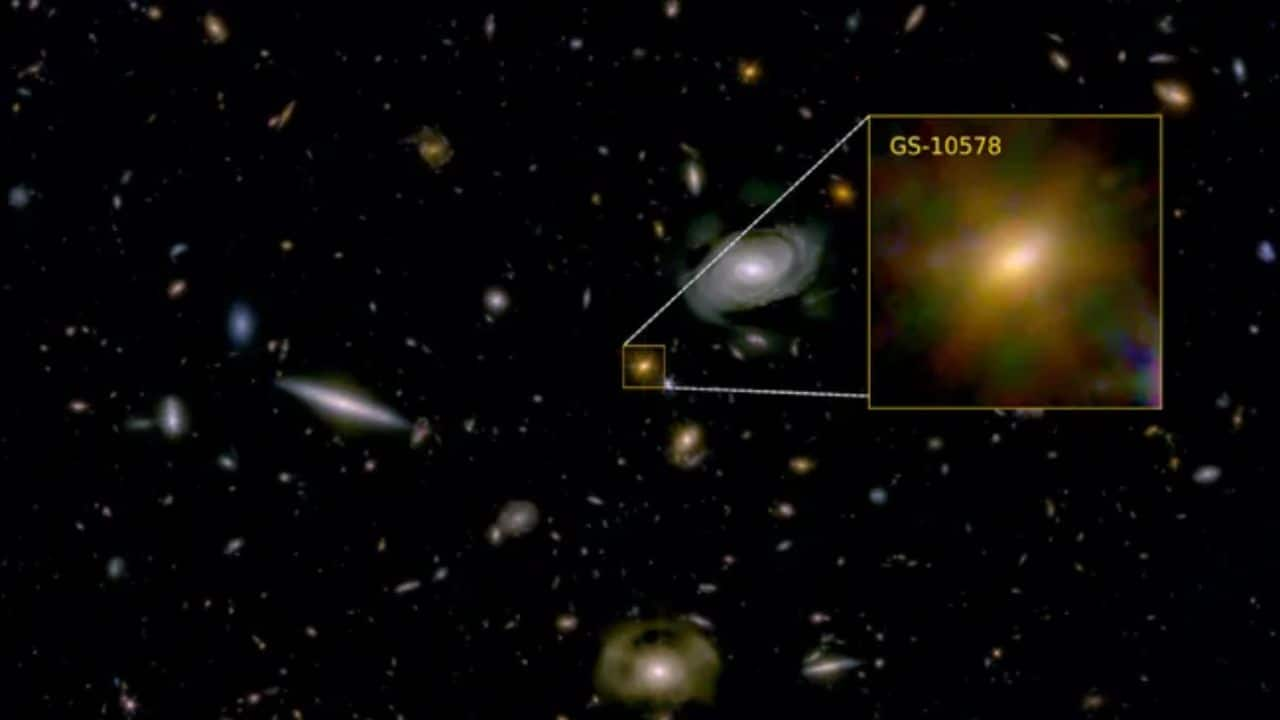



Astronomers using the James Webb Space Telescope have uncovered direct evidence showing that supermassive black holes can starve their host galaxies, depriving them of star-forming material. An international research team, co-led by the University of Cambridge, studied a distant galaxy, affectionately dubbed "Pablo's Galaxy", from the early universe—around two billion years after the Big Bang.
The researchers, using Webb's high sensitivity, found gas being expelled from the galaxy at speeds of about 1,000 kilometers per second. This gas is ejected so fast that it can escape the galaxy’s gravitational pull. The expelled mass of gas is greater than what the galaxy needs to continue forming stars, effectively leaving it without fuel.
New Discoveries and the Role of Supermassive Black Holes
The study also uncovered a new wind component invisible with older telescopes. Cold, dense gas clouds, which don’t emit light, were blocking light from the galaxy behind them. Dr. Francesco D'Eugenio, from Cambridge's Kavli Institute for Cosmology, explained, "The black hole is killing this galaxy, cutting off the 'food' needed for star formation."
 The study uncovered a previously unseen wind component, undetectable by earlier telescopes. (Image: NASA)
The study uncovered a previously unseen wind component, undetectable by earlier telescopes. (Image: NASA)
While theoretical models had predicted such behaviour, this marks the first direct confirmation of the phenomenon. Surprisingly, despite the disruption, stars in the galaxy’s disc continue to move in an organised manner.
Professor Roberto Maiolino, also from Cambridge, noted the vital role of Webb’s capabilities in the discovery, saying, "We knew black holes impact galaxies, but Webb has given us direct proof."
Future Studies to Investigate Black Hole Effects
The study, published in Nature Astronomy, sheds new light on the relationship between galaxies and supermassive black holes. Future observations, using the Atacama Large Millimeter-Submillimeter Array (ALMA), are set to explore if any remaining fuel exists for star formation and assess the black hole’s broader impact on its surroundings. These findings are crucial for understanding how galaxies evolve and shape the universe.
Read Also: Majestic snow leopard caught on camera by US photographer leaves internet awestruck; watch it here
Discover the latest Business News, Sensex, and Nifty updates. Obtain Personal Finance insights, tax queries, and expert opinions on Moneycontrol or download the Moneycontrol App to stay updated!
Find the best of Al News in one place, specially curated for you every weekend.
Stay on top of the latest tech trends and biggest startup news.